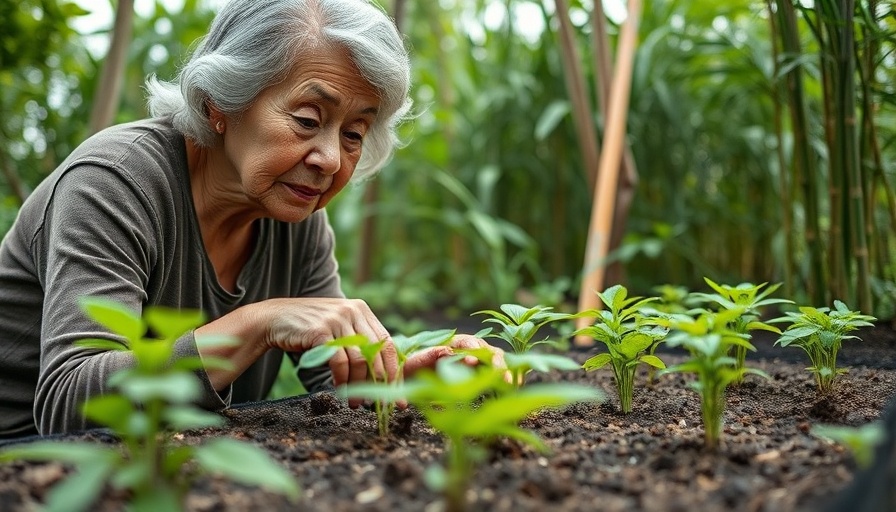
The Ambitious Vision Behind Indonesia's Food Estate Program
Indonesia's plan to expand agricultural land through its food estate initiative aims to tackle food insecurity in one of the world's most populous nations. With a vision to transform 20 million hectares of forest and peatland into farmland for staples like rice and corn by 2027, the government believes this drastic measure will reduce reliance on imports and bolster self-sufficiency. However, critics are raising alarms about the potential ecological devastation involved in such a large-scale conversion.
A Reality Check: Why Food Security Matters
As of 2023, Indonesia ranks poorly in terms of food security, sitting at 63rd out of 113 countries on the Global Food Security Index. This is largely due to rising imports of essential crops like rice and corn, indicating domestic production struggles to meet the needs of a growing population that is projected to reach 270 million. The urgency behind the food estate initiative is clear—eliminating food shortages by aiming for self-sufficiency in the agricultural sector by 2028.
Environmental Dilemmas: The Cost of Expansion
The ambitious food estate project, however, is not without severe environmental implications. Organizations like Greenpeace have reported that significant portions of the land earmarked for this initiative are carbon-dense peatlands, whose destruction could lead to a surge in carbon emissions. Experts warn that unlocking these areas could undo Indonesia's efforts to combat climate change. Moreover, similar past projects, like the Mega Rice Project in the 1990s, ended in failure, leading many to question whether the current plan is merely a repeat of history.
The Lessons of the Past
The Mega Rice Project serves as a cautionary tale for the current government. Intended to turn Borneo into a rice bowl, it ended with barren fields and ecological damage due to poor planning and unsuitable cultivation methods. The lessons learned from this failed endeavor, such as the critical need for environmental impact studies and local soil assessments, seem to be overlooked once again, raising fears that history might be repeating itself. Critics highlight that significant planning and thoughtful implementation based on local knowledge are crucial for any hope of success in such ambitious projects.
The Role of Local Knowledge and Community Engagement
Voices from local communities are often drowned out in the rush for development. Many village farmers have reported that the seeds provided by the government were ill-suited to the local soil conditions, leading to poor crop yields. Furthermore, a lack of training on effective agricultural techniques has compounded these issues, leaving local farmers without the knowledge they need to thrive. Community engagement and understanding the unique agricultural landscapes are essential for implementing successful farming initiatives. Without these foundational elements, even the most well-funded projects risk failure.
Future Predictions: What Lies Ahead for Indonesia's Agriculture?
Looking ahead, the future of Indonesia's food production hangs in the balance. As the government pushes forward with its food estate program, it remains crucial to balance agricultural needs with environmental conservation. The question remains—can this ambitious plan be executed without repeating the mistakes of the past? Successful implementation requires thorough ecological assessments, adaptation to local conditions, incorporation of community insights, and the establishment of sustainable practices that align with environmental conservation efforts.
Conclusion: Calls to Action for Sustainable Solutions
The current trajectory of Indonesia's food estate program sends a clear message about the need for responsible agricultural initiatives that align with both food security and environmental sustainability. As stakeholders from local communities to international organizations weigh in, it's evident that a collaborative approach is necessary moving forward. Advocating for sustainable agricultural practices and prioritizing environmental stewardship is not just an option, it's a necessity for building a resilient future for Indonesia's landscape and its people. Let's advocate for tailored solutions that recognize the importance of biodiversity while addressing the pressing challenges of food security.
 Add Row
Add Row  Add
Add 



Write A Comment